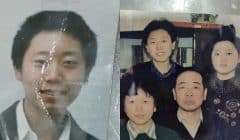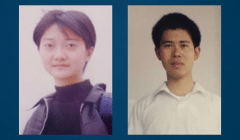Developments in Hong Kong and Macau
In 2009, at least two Hong Kong residents were detained in China, a Macau resident was abducted and interrogated while visiting Guangdong, and a series of harassing phone calls revealed the extent of monitoring of adherents in Macau. Meanwhile, a court ruling in Hong Kong pointed to the secrecy surrounding suspicious decisions by the immigration authorities to periodically deny entry to Falun Gong practitioners.
Although technically part of the People’s Republic of China, unlike in the Mainland, Falun Gong is not banned in Hong Kong and Macau and practitioners are generally allowed to practice freely. The treatment of Falun Gong practitioners in these territories has thus emerged as a critical test for the “one country, two systems” arrangement under which the two former European colonies were returned to Chinese sovereignty in 1997 and 1999 respectively.
Though not experiencing the harsh repression of their counterparts on the Mainland, since 1999, adherents based in these territories or traveling to them have encountered various degrees of harassment, surveillance, and travel restrictions. Several Hong Kong residents have also been detained and imprisoned on the Mainland.
Hong Kong
Hong Kong Residents Imprisoned in China
Li Yaohua and Zhang Yibo: Among those detained in security agencies’ sweeps ahead of the Shanghai Expo were Hong Kong residents Li Yaohua, 64, and her daughter Zhang Yibo, age 30. Ms. Zhang was working as a financial manager with Siemens Shanghai branch when she and her mother were arrested along with three other Falun Gong practitioners on June 4, 2009. They were held in the Xuhui District Detention Center for ten months, where they were deprived of sleep and suffered physical abuse. On March 18, 2010, a sham trial was held in which Ms. Li and Ms. Zhang were sentenced to 3.5 and 1.5 years in prison for their practice of Falun Gong. Ms. Li’s son, Zhang Yiyuan, is a professor of dentistry at the University of California Los Angeles.
Court Ruling Highlights Secrecy Surrounding Suspicious Immigration Decisions
Unlike in previous years, there were no known cases of Falun Gong practitioners being denied entry to Hong Kong during 2009. However, a court ruling on a case of Taiwanese practitioners being barred entry in 2003 highlighted the secrecy, arbitrariness, and suspicious circumstances surrounding immigration controls in Hong Kong in Falun Gong and other so-called “sensitive” cases.
The case in question involved an incident in February 2003 when 80 Taiwanese Falun Gong practitioners were denied entry when traveling to Hong Kong to attend an experience sharing conference. They were refused entry allegedly due to “security reasons” cited by Hong Kong’s Immigration Department and repatriated, sometimes by officers using excessive force.
Shortly after the incident, in April 2003, four of the affected Taiwanese practitioners (including two against whom force was used and all with valid multiple entry permits) along with the local Hong Kong Falun Dafa Association commenced judicial review proceedings to challenge the government’s decision to deny entry to the practitioners. The applicants believed that they were denied entry solely because of their beliefs and ostensibly due to a “blacklist” of Falun Gong practitioners provided by the central authorities in Beijing to the Hong Kong government. They requested that the court declare the decision to deny them entry unlawful, in violation of the Basic Law and Hong Kong Bill of Rights Ordinance or at least, that no proper cause existed to deny them entry.
On September 4, 2009, the Court of Appeals issued a decision generally avoiding questions of religious discrimination or the existence of a “blacklist.” Instead, the ruling primarily dealt with whether the Hong Kong government had acted with full and appropriate candor in responding to requests related to the justification for denying entry to the practitioners. The principle of “candor” is a legal duty by which the government must not purposely mislead the court or obstruct its proceedings by withholding key information. The appeal was of a decision rendered by a lower court in March 2007.
The 93-page decision is a damning assessment of the Hong Kong government’s behavior and lack of candor in the case, observing that the authorities were “quite content to leave everyone, including the court, in the dark.”
In particular, the presiding judges raised concerns over self-contradictory statements by the government, delayed revelations that key documents relevant to assessing whether the practitioners had been legitimately denied entry were destroyed, and the somewhat incredible assertion that among all government departments there were reportedly no documents in existence pertaining to an incident involving 80 people, use of force, and clear political sensitivities.
In the concluding paragraphs of the judgment, the leading judge on the case stated:
Regretfully […], the duty of candour has been breached in the present case by the Respondent.
[…] Ms. Chu (the 1st Applicant [and counsel for the Applicants during the appeal proceedings]) submitted forcefully that all the Applicants wanted to know was why they were denied entry. If the Respondent’s position was that this was not by reason of their Falun Gong association alone, then just what were the reasons? The most that was said was that there were security concerns.
[…] Even to this day, over six years since the date the 4 Applicants were denied entry, it is still unclear just what was the basis for this statement, nor is it clear as to whether any documents exist to support it. It is a most extraordinary state of affairs.[1]
As noted in the paragraph 120 of the judgement, “Normally, where the duty of candour has been breached in such a way in relation to the disclosure and presentation of relevant facts, the consequence in judicial review proceedings … is that the court is entitled to draw adverse inferences [and rule against the government].”
Yet in this case, the court nevertheless ruled in the government’s favor, finding that Chu and her fellow plaintiffs failed to do further discovery and to cross-examine two important officials, including Timothy Tong, Acting Security Bureau Secretary. In an interview with the Taipei Times, Chu said that such an interpretation was misleading:
‘Why didn’t we cross-examine [Tong]?’ Chu explained ‘The legal purpose of cross-examining is to attack the credibility of an affirmation [written statement].’ But at the Court of First Instance, the judges were skeptical of Tong’s statement because the documents in the case had allegedly been destroyed years before, she said. ‘Our counsel said that if we applied to cross-examine, the court would turn it down and tell you, you don’t have to. In the experience of those senior barristers, the judges used very strong wording on the affirmation. It was quite sufficient.’[2]
At the end of the decision, the leading judge acknowledges that the government got off lightly. After dismissing the appeal, he writes: “I conclude this judgment by saying that the Respondent [government] can consider himself extremely fortunate in these proceedings.”
Law Yuk-kai, director of the Hong Kong Human Rights Monitor (HKHRM), raised concerns that the ultimate result of the decision was that the government had benefited from its lack of candor. “It is very undesirable to have a ruling in which a government party benefits from destroying evidence … If that is allowed to happen, there may be future cases,” he told the Taipei Times.
Reflecting the broader concerns raised by the case, in April 2010, the HKHRM submitted a request to two Legislative Council panels urging them to investigate the government’s failure to discharge the duty of candor. The Monitor also requested the panels to take steps to guarantee that the needed mechanisms are in place to protect fairness in immigration control and security matters, as well as a proper for managing government records.
The following are excerpts from the HKHRM submission articulating their concerns:
The obligation to discharge this duty [of candor], and a gross example of Government’s conspicuous failure to do so, is highlighted in the recent decision of the Court of Appeal in Hong Kong Association of Falun Dafa & Others v Director of Immigration […]
[…], in the course of the proceedings before Hartmann J., in November 2005, the Department eventually revealed, […] that crucial records relating to the Applicants, had been destroyed in a matter of only 3 weeks after they were refused entry and that this was done “in accordance with standard Immigration Department practice”. The Court of Appeal, referring to this “dramatic revelation”, commented that it required a proper explanation. And not only as part of the duty of candour, “but also because the very act of destruction, without proper explanation, necessarily gave rise to questions of motive for the destruction and to the bona fides of the decisions challenged.”
[…] The Monitor is deeply concerned about the Government’s failure in the Falun Dafa case to discharge faithfully and fully its duty of candour. It would thus like to propose that the issue be discussed in the relevant LegCo panels.
[…] Human rights cannot be effectively protected if a government or government officials are allowed to destroy records unfavourable to them or to withhold the relevant records from the judiciary or persons who are adversely affected by their decisions or acts.[3]
Macau
Surveillance: According to local adherents, since the persecution began in 1999, each morning at parks where practitioners perform the Falun Gong exercises, plainclothes police monitor and document their activities and identity of the participants. Similarly, when local practitioners hold activities, such as to inform the public of the rights abuses faced by their fellow believers in China, plainclothes police regularly take photos and otherwise monitor the participating adherents.
Harassing phone calls and fines: As an indication of the scope and specificity of surveillance, beginning on Dec 5, 2009, nearly every Falun Gong practitioner in Macau began to receive phone messages slandering Falun Gong. The harassing calls ceased after Hu Jintao completed his visit to Macau on Dec 20.
In recent years, local practitioners have also faced restrictions on their right to free assembly. During 2007 and 2008, while holding Falun Gong-related public activities on the weekends in accordance with local laws, police nonetheless harassed the participants and issued them fines. The practitioners appealed the fines and succeeded in having them waived.
Macau practitioner abduction on the Mainland: On May 28 2009, a Macau practitioner Ms. Hu Nanping, age 55, had dinner with friends in Zhuhai, Guangdong province. After the dinner, at approximately 9pm, her friends dropped Ms. Hu off at her next destination and left. While walking, three people emerged from a nearby car and stopped Ms. Hu. They reportedly placed a black hood over her head and took her to some form of secret detention facility. The individuals identified themselves as being from State Security. They tried to force her to write a guarantee statement not to practice Falun Gong and to serve as an informant for them to report information about future Falun Gong activities in Macau upon her return to the territory. They threatened that if she refused, her relatives in the Mainland would be in danger.
Ms. Hu was held for over 24 hours and eventually signed a statement agreeing not to break any Mainland law, a euphemism for agreeing to cooperate. Upon returning to Macau, she repeatedly received phone calls and voicemail messages from Mainland State Security officers. She subsequently published a statement recommitting to practicing Falun Gong and declaring invalid the statement she was forced to sign while in Chinese custody. She ceased replying to phone calls seeming to come from the security agents and the calls eventually stopped. However, she is now unable to return to the Mainland.
Travel Restrictions: Since 2000, six Macau practitioners who visited the Mainland, subsequently had their “Mainland Travel Permit for Macau Residents,” usually issued by the Public Security Bureau in Guangdong, revoked or confiscated.
—
Notes:
[1] Hong Kong Court of Appeal, Hong Kong Association of Falun Dafa & Others v Director of Immigration, CACV 119/2007; The full decision is available here: http://legalref.judiciary.gov.hk/doc/judg/word/vetted/other/en/2007/CACV000119_2007.doc
[2] Celia Llopis-jepsen, “Policy of Truth,” Taipei Times, November 29, 2009; http://www.taipeitimes.com/News/feat/archives/2009/11/29/2003459717
[3] Hong Kong Human Rights Monitor, Submission to the LegCo Panel on Administration of Justice and Legal Services and the Panel on Security, April 2010; http://www.hkhrm.org.hk/resource/Submission_duty_of_candour_3MAY10.doc
Back to Table of Contents






